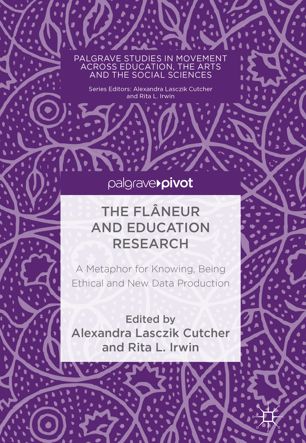

Most ebook files are in PDF format, so you can easily read them using various software such as Foxit Reader or directly on the Google Chrome browser.
Some ebook files are released by publishers in other formats such as .awz, .mobi, .epub, .fb2, etc. You may need to install specific software to read these formats on mobile/PC, such as Calibre.
Please read the tutorial at this link: https://ebookbell.com/faq
We offer FREE conversion to the popular formats you request; however, this may take some time. Therefore, right after payment, please email us, and we will try to provide the service as quickly as possible.
For some exceptional file formats or broken links (if any), please refrain from opening any disputes. Instead, email us first, and we will try to assist within a maximum of 6 hours.
EbookBell Team

4.7
26 reviewsThis book creatively and critically explores the figure of the flâneur and its place within educational scholarship. The flâneur is used as a generative metaphor and a prompt for engaging the unknown through embodied engagement, the politics of space, mindful walking and ritual. The chapters in this collection explore sensorial qualities of place and place-making, urban spaces and places, walking as relational practice, walking as ritual, thinking photographically, the creative and narrative qualities of flâneurial walking, and issues of power, gender, and class in research practices. In doing so, the editors and contributors examine how flâneurial walking can be viewed as a creative, relational, place-making practice. Engaging the flâneur as an influential and recurring historical figure allows and expands upon generative ways of thinking about educational inquiry. Furthermore, attending to the flâneur provides a way of provoking researchers to recognize and consider salient political issues that impact educational access and equity.